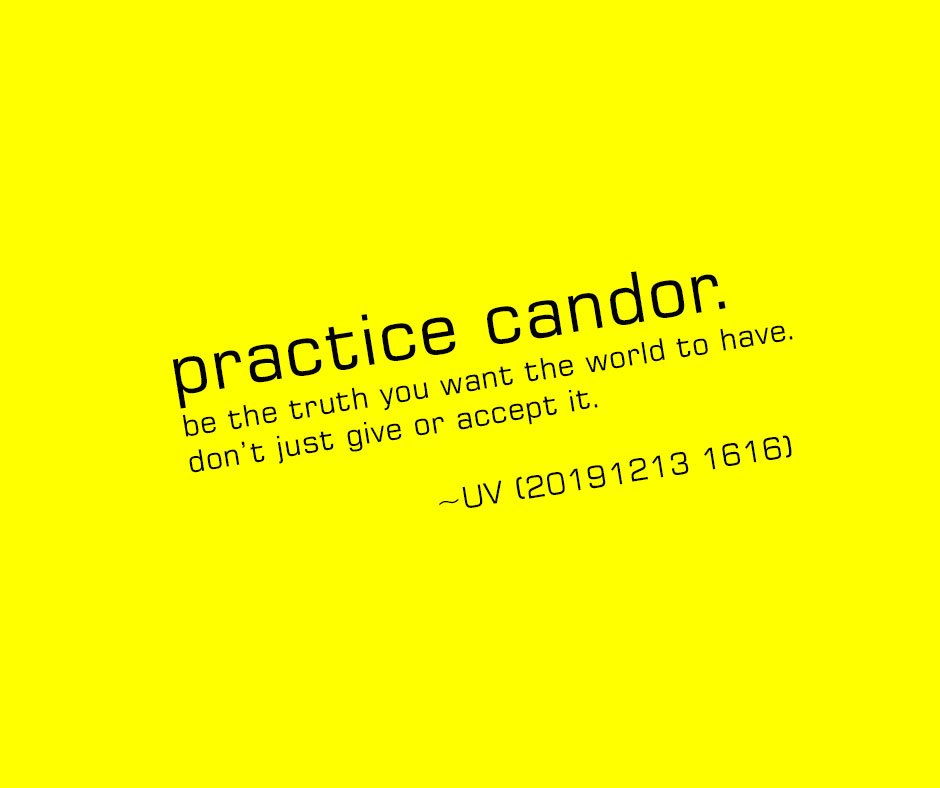
If you speak about what is not in your experience;
if you advise others about what is not visible in the list of your accomplishments;
if you create a product/content/video/audio/writeup which you can’t use/consume/see/listen/read yourself even if you belong to your definition of your target audience;
then you are on an assured journey to a living hell.
For you. For your work. For your surroundings.
Giving or receiving ‘Gyan’ is of little value. It is like doing the job of a postman: someone wrote to someone else, and you are just delivering!
Ok, it was oversimplified, but the point is clear. Practice candor instead.
Be the truth you want the world to have. Don’t just give or accept it.
Of course, you can, but that will likely lead you to where you don’t want to go in your life, do you?
Further notes:
- The origins of “candor” shine through in its first definition: “Candor” traces back to the Latin verb candēre (“to shine or glow”), which in turn derives from the same ancient root that gave the Welsh language can, meaning “white,” and the Sanskrit language “candati,” which translates to “it shines.”
- Other descendants of “candēre” in English include “candid,” “incandescent,” “candle,” and the somewhat less common “candent” and “candescent” (both of which are synonyms of “incandescent” in the sense of “glowing from or as if from great heat”).
- Candor is related to the adjective “candid,” which refers to straightforward honesty or frankness in speech or expression. (I got to know about ‘Candor’ in the year 2007 while reading the 4Es of Leadership from Jack Welch, but I did not understand much about it.
- Some synonyms for Candor are bluntness, candidness, directness, frankness, unguardedness, and plainspokenness. (Useful for understanding what this post is about!)